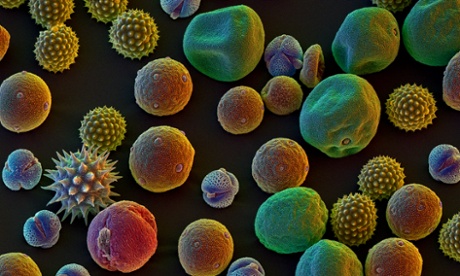Find the correct treatment
Hay fever is increasingly common and now affects about one in four of the population, says Glenis Scadding, a consultant allergist at the Royal National Throat, Nose and Ear hospital. Citing official advice from the NHS, she says over-the-counter antihistamines are fine for those with mild symptoms, but she warns against sedating antihistamines, which can impair driving and cognitive function. Scadding says the treatment of choice for more severe hay fever is usually an intranasal steroid spray, but she recommends seeking medical advice if symptoms are unclear or potentially complicated by other issues.
Take preemptive measures
Taking hay fever medication early is key to achieving maximum effectiveness when pollen levels peak, says Holly Shaw, a nurse adviser at Allergy UK. People with hay fever are advised to start using nasal sprays two weeks before symptoms usually begin. If you need advice on medication, Shaw advises speaking to a pharmacist. She also stresses the impact pollen can have on those with asthma, 80% of whom will also have hay fever. “Pollen can be an allergic trigger for those with asthma. Managing hay fever symptoms is an important part of keeping asthma under control.”
Check the pollen count
For a daily local pollen forecast in the UK, check the Met Office; from March to September, you can opt in to receive push notifications on its app. It is useful to know that the pollen season falls into three main sections: in the northern hemisphere, tree pollen from late March to mid-May, grass pollen from mid-May to July, and weed pollen from the end of June to September. The NHS recommends wearing wraparound sunglasses when outside, and putting petroleum jelly around the nostrils to trap pollen.
Avoid bringing pollen into the house
Pollen can be carried into your home on clothing or by pets. It is advisable to change your clothes and even have a shower when you come in from outdoors. Allergy UK advises not drying clothes outside and keeping windows closedwhen pollen counts are high, especially in early morning and evenings when levels of pollen in the air are highest. The NHS also recommends not cutting grass, or walking on cut grass, and avoiding keeping fresh flowers in the house.
Try to reduce stress
Studies have shown that stress can exacerbate allergies. Dr Ahmad Sedaghat, an ear, nose and throat specialist at Massachusetts Eye and Ear Infirmary, explains the possible mind-body connection of inflammatory disease. “Stress can make the allergic response worse. We don’t know why exactly, but we think stress hormones can ramp up the already exaggerated immune-system response to allergens.” Meditation, exercise and eating healthily are all recognised ways of trying to reduce stress.










